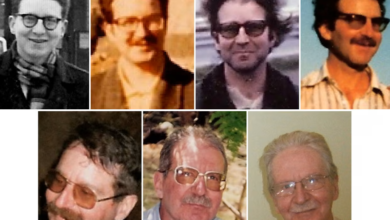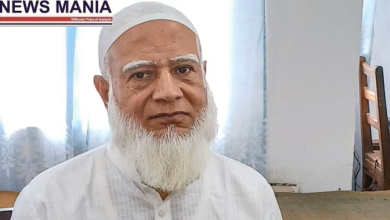Hamas Accepts Gaza Ceasefire Draft Agreement, Hostage Release Plan: Report
News Mania Desk / Piyal Chatterjee / 15th january 2025
Hamas, based in Palestine, has agreed to a draft ceasefire agreement in the Gaza Strip and a hostage release arrangement amid the ongoing conflict with Israel since October 2023, according to two officials involved in the negotiation.
On Wednesday, negotiators were close to finalizing the ceasefire details in Gaza following extensive discussions in Qatar. As per the mediators from the United States and Qatar, Israel and Hamas are at the nearest stage to finalizing the agreement and concluding the 15-month-long conflict.
According to an Israeli official, the report indicated that advances have been achieved, but the specifics of the agreement are being settled. Hamas, based in Palestine, has agreed to a proposed ceasefire in the Gaza Strip and a hostage release arrangement amid the ongoing conflict with Israel that began in October 2023, according to two officials.
On Wednesday, negotiators were close to finalizing the details of a ceasefire in Gaza after extensive discussions in Qatar. As per mediators from the United States and Qatar, Israel and Hamas have reached the closest stage in finalizing the agreement to resolve the 15-month-long conflict. Citing an Israeli official, the report indicated that advancements have been achieved, although the specifics of the agreement are still being finalized. Earlier on Tuesday, US Secretary of State Antony Blinken remarked that a ceasefire agreement between Israel and Hamas was “on the verge.”
“It’s more imminent than it has ever been,” he stated, adding that the announcement could arrive in a matter of hours or days. According to a previous report, as part of the existing agreement, Hamas is set to release 33 Israeli captives during the last week of the Biden administration prior to next Monday. The Israeli government thinks that Hamas and its affiliates continue to possess 94 hostages seized from Israel during the October 2023 assault, with at least 34 confirmed deceased.
If the initial phase goes as intended, negotiations would commence on the 16th day after the agreement takes effect for a second phase, during which the remaining live hostages would be freed and the remains of the deceased hostages returned.
According to the agreement, the withdrawal of troops would occur in stages, with Israeli forces staying in the border area to protect Israeli towns and villages near the border. Furthermore, security measures would be established at the Philadelphi corridor, situated along the southern border of Gaza, with Israel retreating from sections of it following the initial days of the agreement.
Unarmed residents from North Gaza would be permitted to return, with a system in place to guarantee that no arms are transported there. Israeli forces will exit the Netzarim passage located in central Gaza. At the same time, Palestinian militants sentenced for murder or lethal assaults would be released as well, though the numbers would rely on how many live hostages there are, which remains uncertain. The inmates would not be set free to the West Bank. Hamas militants involved in the October 7, 2023, assault on Israel will not be set free.
There would also be a considerable rise in humanitarian assistance to the Gaza Strip, where organizations such as the United Nations caution that the inhabitants are confronting a serious humanitarian crisis. Who governs Gaza post-war remains one of the significant uncertainties in the negotiations, and it seems that the latest discussions have not touched upon this matter because of its intricacy and the possibility that it could delay a constrained agreement.
Israel has stated that Hamas can have no part whatsoever and has dismissed the participation of the Palestinian Authority, which was established under the Oslo interim peace agreements three decades ago and holds restricted authority in the occupied West Bank.
From the outset of its campaign in Gaza, it has stated that it will maintain security control over the enclave after the conflict concludes. Nevertheless, the international community insists that Gaza should be governed by Palestinians, yet attempts to discover alternatives to the primary factions within civil society or tribal leaders have largely been unsuccessful.






